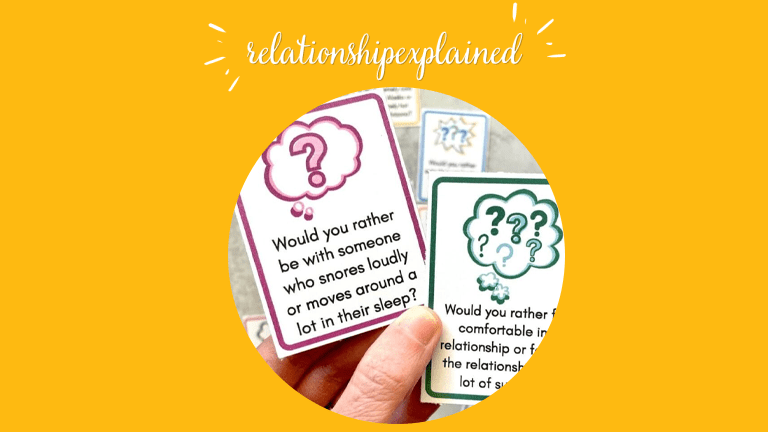Does First Relationship Last
First relationships often break down due to inexperience, poor communication, and unrealistic expectations. However, lasting ones result from shared growth, emotional resilience, and mutual understanding. Improving communication, embracing change, cultivating trust and emotional intimacy, and creating shared experiences can make your first relationship endure.
The longevity of first relationships is a topic that has piqued the curiosity of many.
As individuals embark on their initial romantic endeavors, questions arise about the potential for these relationships to stand the test of time. Does the novelty and intensity of a first love guarantee lasting commitment, or are these relationships destined to be fleeting experiences?
That is why this guide delves into the complexities of young love, seeking to answer the age-old question of whether such a relationship can truly last. By exploring psychological insights into both possibilities, we can shed light on the intriguing question of whether first relationships have the potential to endure.
Reasons Why First Relationships Never Last
1. Lack Of Experience
Usually, first relationships occur among children during adolescence, often in the heat of the moment, when they are still discovering their own identity and learning about romantic dynamics. The lack of prior relationship experience can lead to challenges in understanding and managing the complexities of a partnership.
Without a foundation of past relationships to draw upon, individuals may struggle to navigate issues such as conflict resolution, compromise, and maintaining a healthy balance between independence and togetherness. The learning curve in a first relationship can be steep, and this lack of experience may contribute to the potential for the relationship to break down prematurely.
2. Unrealistic Expectations
People often enter their first relationship with romanticized notions fueled by movies, books, and societal expectations. The initial rush of emotions and the novelty of being in a romantic partnership can create an idealized view of love. However, as the new relationship becomes old, reality sets in, revealing the imperfections and challenges that come with such a connection.
The stark contrast between fantasy and reality can lead them to realize that relationships are hard work. As a result, they may reach a point where they feel disappointed and disillusioned. And if one or both partners struggle to adapt their expectations to the complexities of a real-life relationship, they often end up going their separate ways eventually.
3. Limited Communication Skills
Effective communication between partners is essential for any successful relationship. In a first relationship, individuals may still be developing their communication skills, particularly in expressing their needs, desires, and concerns. In other words, you may find it challenging to articulate your emotions and effectively convey your thoughts, leading to misunderstandings and unaddressed issues.
The inability to communicate openly and honestly can create a barrier to resolving conflicts and fostering emotional intimacy. That, in turn, may contribute to the eventual breakdown of your relationship.
4. Exploration And Curiosity
Most first relationships are characterized by a sense of curiosity and exploration. Most people may feel a desire to experience different aspects of romantic relationships, leading them to question whether their current partner is the right fit.
This curiosity, coupled with the fear of missing out on other experiences, can prompt individuals to prematurely end the relationship to pursue other options or fulfill their desire for exploration. The sense of novelty and the allure of the unknown can outweigh the commitment to a first relationship, resulting in its demise.
5. Growing Apart
Since a lot of people experience their first relationship when they are very young, they are unable to sustain the connection over time. As individuals mature and develop their own interests, goals, and values, they may find themselves growing apart from their first partners.
During the formative years of adolescence and early adulthood, individuals undergo significant personal growth and transformation. Their evolving identities and changing priorities can lead them down separate paths that diverge from their partner’s trajectory. The growing differences in values, aspirations, or even geographical locations can strain the relationship, making it increasingly challenging to maintain a strong connection and ultimately leading to a breakup.
6. Limited Coping Skills
Every relationship encounters challenges, setbacks, and conflicts. Successfully navigating these difficulties requires you to have emotional resilience and effective coping mechanisms. That’s because many of you may have limited experience in managing relationship stressors.
You will often struggle to regulate emotions, cope with relationship conflicts, or recover from setbacks. Eventually, both of you may feel overwhelmed or unsure how to navigate the challenges you encounter. That will ultimately put a strain on the relationship and potentially lead to its demise.
7. Lack Of Compatibility
Discovering compatibility is an ongoing process that may take time and multiple relationships. If you get into a new relationship with the first person you meet in the dating pool, then it will obviously be difficult to sustain. That’s because the partners may not yet have a clear understanding of their own preferences, needs, and deal-breakers in a long-term partnership.
As you explore their own identities and values, you may discover fundamental differences that make it challenging to envision a sustainable future together. These differences could include contrasting life goals, incompatible values, or conflicting interests that create an ongoing source of tension. That eventually hinders the development of a lasting support system between partners, thereby ending the relationship.
8. Social Pressure And Influence
Another big reason why new relationships fail is peer pressure and social influence. After seeing other relationships between their friends, many people get excited about being in a relationship without fully understanding it.
These external influences may lead individuals to question their choices or feel pressured to conform to social norms. Because of that, they may make rash decisions instead of exploring true romance or friendship. And the result of that is often a failed relationship.
Reasons Why First Relationships Can Last Forever
While it is true that maintaining your first relationship can be difficult, it is not impossible. If you go looking, you will be surprised at how many people are still going strong with their first relationships. In fact, there are many people who rekindle the relationship with their first partners years after their initial relationship ended.
So, how can these rare relationships survive against all the odds while most others perish? Here are some of the reasons.
1. Shared Growth And Memories
Almost every first relationship occurs during the formative years, allowing partners to share transformative experiences and create lasting memories. From teenage adventures to pivotal life events, these shared milestones strengthen the bond and create a unique sense of history. The nostalgia and sentimental value attached to these memories contribute to the longevity of the relationship.
2. Mutual Support And Understanding
The history and familiarity of a first relationship foster an unparalleled level of support and understanding. Partners have witnessed each other’s growth, vulnerabilities, and personal evolution, creating a deep level of empathy and compassion. This mutual support and understanding become the foundation for a lasting relationship built on trust, acceptance, and unwavering emotional support.
3. Emotional Resilience
First relationships often involve navigating the rollercoaster of emotions typical in young love. Weathering the highs and lows together cultivates emotional resilience, reinforcing the commitment between partners. This resilience equips them with the ability to face future challenges, bounce back from setbacks, and continuously work on strengthening their bond.
4. Shared Values And Goals
A lasting first relationship often thrives on a strong alignment of values, beliefs, and life goals. Partners share a common vision for their future, supporting and motivating each other to achieve their individual aspirations. This shared sense of purpose provides a strong foundation for long-term commitment and creates a sense of unity and harmony in the relationship.
5. Adaptability And Flexibility
Successful first relationships that endure require adaptability and flexibility as partners grow and evolve. They embrace change and are willing to adjust their expectations and plans to accommodate each other’s personal growth. This flexibility allows partners to navigate life’s transitions together, accommodating new circumstances and challenges and ensuring the relationship remains resilient and adaptable to change.
6. Continuous Investment
Long-lasting first relationships can be great learning experiences that require ongoing investment from both partners. If you actively prioritize the relationship by dedicating time, effort, and resources, you can nurture the connection successfully. By consistently investing in the relationship, both you and your partner demonstrate commitment and create a solid foundation for lasting love.
7. Intimacy And Passion
Sustaining a lasting relationship requires the continuous cultivation of intimacy and passion. In enduring first relationships, partners prioritize emotional and physical connection. They invest in deepening intimacy through meaningful conversations, shared experiences, and maintaining a vibrant and satisfying physical relationship.
By actively nurturing intimacy and passion, partners keep the relationship alive and thriving, ensuring long-term satisfaction and commitment.
8. Mutual Respect And Admiration
Lasting first relationships are rooted in mutual respect and admiration. If both partners feel the same way about each other and genuinely value and appreciate each other’s unique qualities, they can carry the relationship to new heights. This mutual respect builds a strong foundation of trust, deepens the emotional connection, and reinforces the commitment to each other, contributing to long-term success.
How Can You Make Your First Relationship Last For A Long Time?
The idea of getting married to your first love can be truly amazing. However, for that to happen, you have to put in a lot of effort to ensure that the first relationship survives. Below, we have mentioned some strategies that you can use to sustain this connection.
1. Develop Effective Communication Skills
As we have suggested before, open and honest communication is crucial for the longevity of any relationship. Sure, there are bound to be some communication gaps in the first serious relationship that you get into. But if your goal is marriage, then you need to encourage open dialogue where both parties can voice their needs, concerns, and desires. Listen to each other and strive to understand each other’s perspectives.
2. Cultivate Trust And Mutual Respect
It's no secret that trust forms the cornerstone of a lasting relationship. If you are reliable, consistent, and honest with your partner, you can trust each other’s intentions and actions. Avoid betraying your partner’s trust, and if trust is broken, work together to rebuild it. Mutual respect is also vital; appreciate and value each other’s individuality and treat each other with kindness and consideration.
3. Nurture Emotional Intimacy
Emotional intimacy is key to sustaining a deep connection. Create a safe space for vulnerability, where both partners can share their feelings, fears, and dreams. Show empathy and support for each other’s emotions. And most importantly, engage in meaningful conversations, expressing affection and appreciation. By continually nurturing emotional intimacy, you can foster a strong emotional connection that withstands the test of time.
4. Embrace Growth And Change
Recognize that both you and your partner will evolve and change over time. Embrace personal growth and encourage each other’s aspirations and goals. Be supportive and adaptable to the changes that occur in each other’s lives. Allow room for individuality while finding ways to grow together as a couple. By embracing growth and change, you can ensure that the relationship remains dynamic and fulfilling, no matter the circumstances.
5. Prioritize Quality Time And Shared Experiences
Dedicate quality time to each other and create shared experiences that strengthen the bond. Plan regular date nights or engage in activities you both enjoy. Explore new interests together and create lasting memories. Regularly check in on the state of the relationship and make adjustments as needed. By investing time and effort into the relationship, you can demonstrate your commitment and foster a strong connection that lasts.
Conclusion
The longevity of a first relationship is influenced by a variety of factors, both internal and external. While some first relationships may face challenges and not stand the test of time, others can evolve into lasting and meaningful connections.
Effective communication, mutual respect, emotional intimacy, adaptability, and shared experiences are essential ingredients for making your first serious relationship work. By continuously investing in the relationship, nurturing growth, and embracing change, partners can overcome obstacles and build a solid foundation for lasting love.
Of course, if nothing works out, then it doesn’t mean all hope is lost. After all, you can use the lessons learned from the first one and apply them to make your next relationship more fulfilling.













